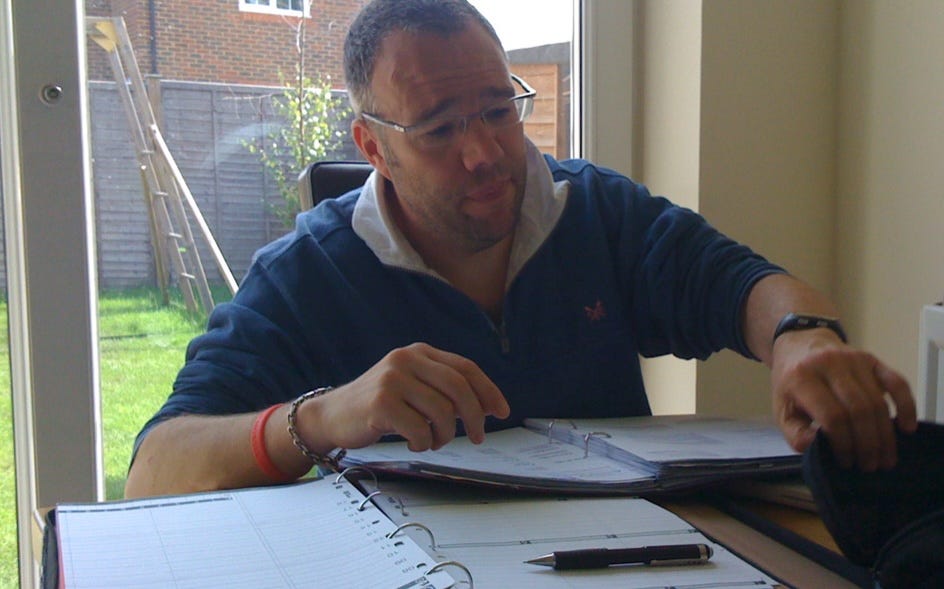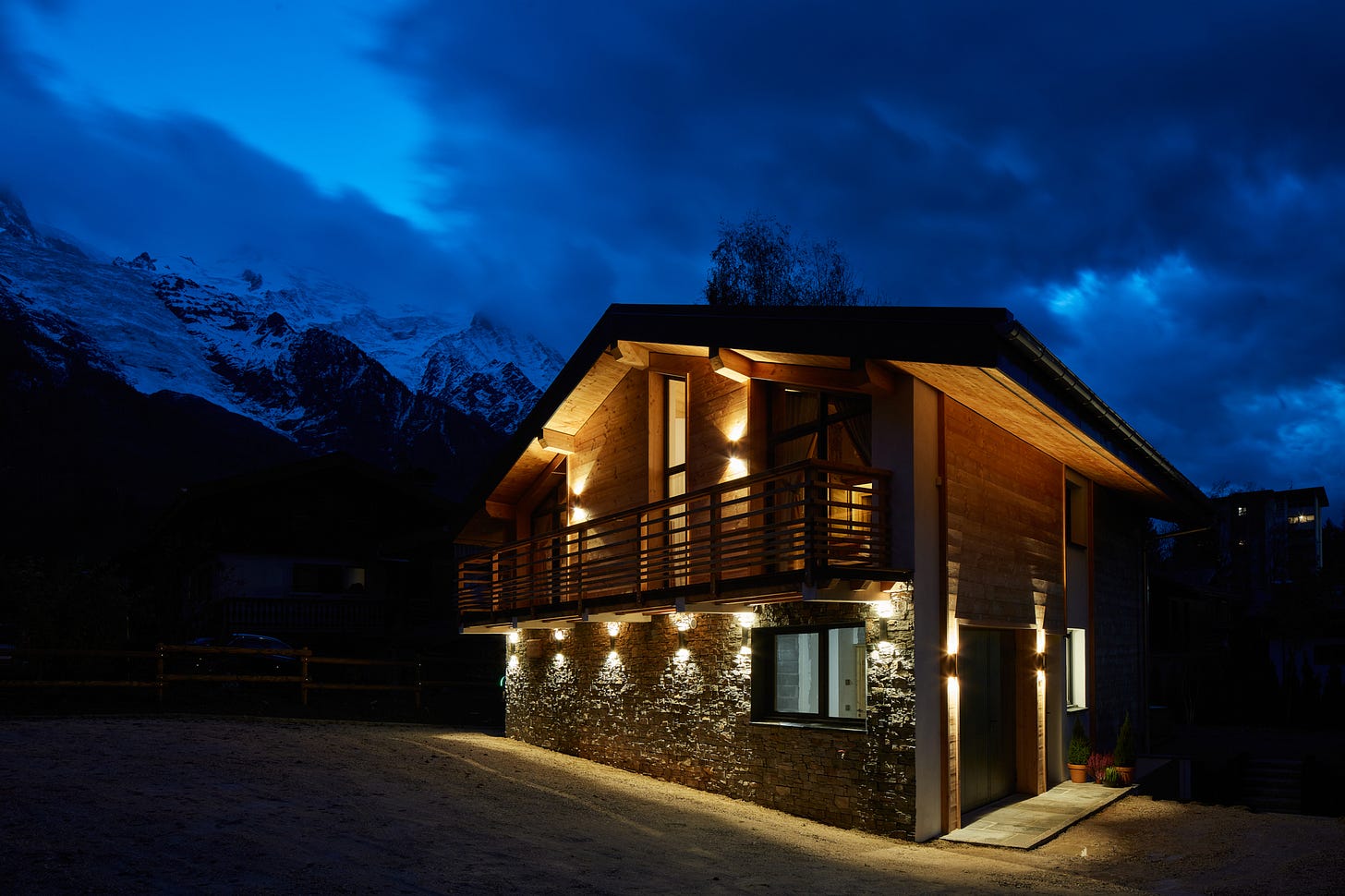How we built a business out of recession - final chapter 54 - the after party
The story of CitNOW*
This is the 54th and final chapter about CitNOW, the company started from a kitchen table in Winnersh, Berkshire. If you’d like to read from the beginning, here’s a link to chpt 1. Each chapter is a 5-minute read. It’s an early draft of a book.
CitNOW was founded by Andrew Howells and Donna Barradale in 2005, although the company was only registered in 2008. In February 2018, we sold the company to Tenzing, a UK private equity company. It has been sold again since.
Thank you for reading along with the previous 53 chapters of this story.
The average novel contains 70-100,000 words, and with each of my chapters being at least 1,000 words, I’m well on my way, at least in volume terms.
Chapter 1 was published on 17th May 2024. I never thought when I started that I’d still be writing this story over a year later.
I’ve just re-read that first chapter, curious to know how I began. It still reads well, which is a good sign, as I constantly like to tinker, which doesn’t necessarily mean improve. I think the chapter has enough to encourage the reader’s return next week. It seemed to work.
Although we sold the company on that last snowy day in February, we were still invested because of the director’s loan notes. After ten-plus years, it’s also unlikely that we could completely switch off overnight without a second thought about what was going to happen next.
I certainly didn’t envy the pressing task for the remainers** to hit their 2018 target, or what changes might be imposed by the new owners.
The first significant piece of news was that Alistair was no longer the CEO and now reported to the newly promoted CEO, Geoffrey. I don’t think they ever bothered with a press release.
The second was the lack of sales growth, which became evident in the monthly reports we received. They were crawling along, picking up incremental business, but nothing substantial. Even the slow tick was being partially eroded by a strengthening churn rate***.
I naively thought we’d left them with the easiest route to goal with the new web app, which had been successfully implemented with Inchcape. All of the dealer groups would be wanting something similar, and CitNOW should have been guaranteed its share of those spoils.
It simply didn’t happen quickly enough in 2018.
Inchcape already had connectivity with all the advertising hubs they regularly used, but this wasn’t the case for many of the other early adopters. Instead, they discovered AutoTrader, the most crucial advertising portal for most dealers, was keen not to lose business, which meant connectivity was presumably not seen as a priority.
The third news item was Nick**** resigned after a few months, which must have come as a shock to no one. He was fed up with Alistair and our decision to sell the business. He wasn’t replaced. Instead, Alistair resumed the role.
When the remainers had to decide how much to personally invest in the new business, Nick low-balled it. If a minimum investment was required, Nick would have made a point of ticking that box.
The rest of 2018 was very different for us.
One of the first actions we took after selling the company was to clear all our debts. The mortgage was the obvious big one. It had felt scary to complete that transaction in Santander’s small provincial branch, not quite believing that the money had gone where it needed to go, until it was finally confirmed later.
Even the mortgage had been a bit of a novelty. We’d only managed to buy Chapman Close several years before, which finally ended a long time in rentals.
That purchase hadn’t been straightforward either, despite Santander lending the company millions. We were about to be turned down for the mortgage, just like the other banks we’d tried. It was only when the commercial side stepped in that the loan was finally granted.
We no longer had any ties to Wokingham, which meant we could move into London and Notting Hill, where we wanted to live.
We’d chosen Wokingham originally because it had good state schools for Georgie and Wills. It also put me closer to Bristol, a journey I made twice a week to see my children - Martha, Iona, and Fin. Although there was little money for a long time, the business afforded me another kind of freedom instead. I’ll always be grateful for that.
By the end of 2018, we’d moved into our mews house, sold Wokingham and enjoyed Christmas in a Chamonix chalet where we entertained family and friends. I’d also bought a sexy foldaway bike, which I used for commuting to Bristol for a while.
It had been quite a journey.
We’d also had plenty of time to get used to the company's failure to hit its target. I decided to assume that the director’s loan was effectively junk, and the chances of more cash were best forgotten about.
We received a quick lesson in how private equity firms generate profits in 2019 when they refinanced the business. Aside from paying off the Santander loan, they borrowed more and repaid much of the capital they’d used to buy the company with. Whatever happened next, they were essentially debt-free, with a nice business to boot.
Part of that process meant an unexpected windfall for us, as certain shares vested. After that, there was no official communication at all, and I returned to my original view - forget it, you’ve had whatever you were going to get.
What to do? We went about it very differently.
Donna spent the next four years obtaining a master’s degree in psychotherapy and is now a coach and mentor, working for several charities, as well as having her own business.
I decided to binge-watch all the TV series that I hadn’t had a chance to watch over the last ten years. Okay, not true, but I loved the idea that I could if I wanted to.
Instead, I play golf. I’ve always loved sport, especially playing it. Why was I surprised to discover so many new friends after joining a club? Quelle surprise - similar aged blokes with relatable stories.
I’ve kept a daily journal since 2017, and I stepped up my writing, adding this weekly newsletter and a mental commitment to write my memoir. There are numerous notes, and, of course, now this first stab at the CitNOW story.
My junk director’s loan turned out to be anything but. Tenzing, the PE house, had gone on a spending spree, buying up discounted automotive third-party suppliers, just like CitNOW, which they bundled into a re-packaged group and sold for a handsome profit.
The first we heard about the second sale was several weeks before it went through. We were staring into an estate agent’s window, looking at chalets we couldn’t afford. There was a request from new lawyers to confirm our identity.
It was my 64th birthday yesterday, a reminder that I need to get on with something. I’m now taking an extended break from this weekly newsletter to write a first draft of the memoir. I’ll be happy to start sharing the new chapters later this year.
Thank you once again for sticking with me.
*CitNOW was our company’s trade name before we sold it in 2018.
**The remainers were the directors who reinvested in the business and continued to work at CitNOW.
***The churn rate is a reference to the number of dealers being lost at the end of their contract. As more competition enters the market, the threat of churn increases.
****Nick was the European Managing Director.




Thanks for the ride!
Look forward to your next scribble!
Please keep writing. Insightful and entertaining